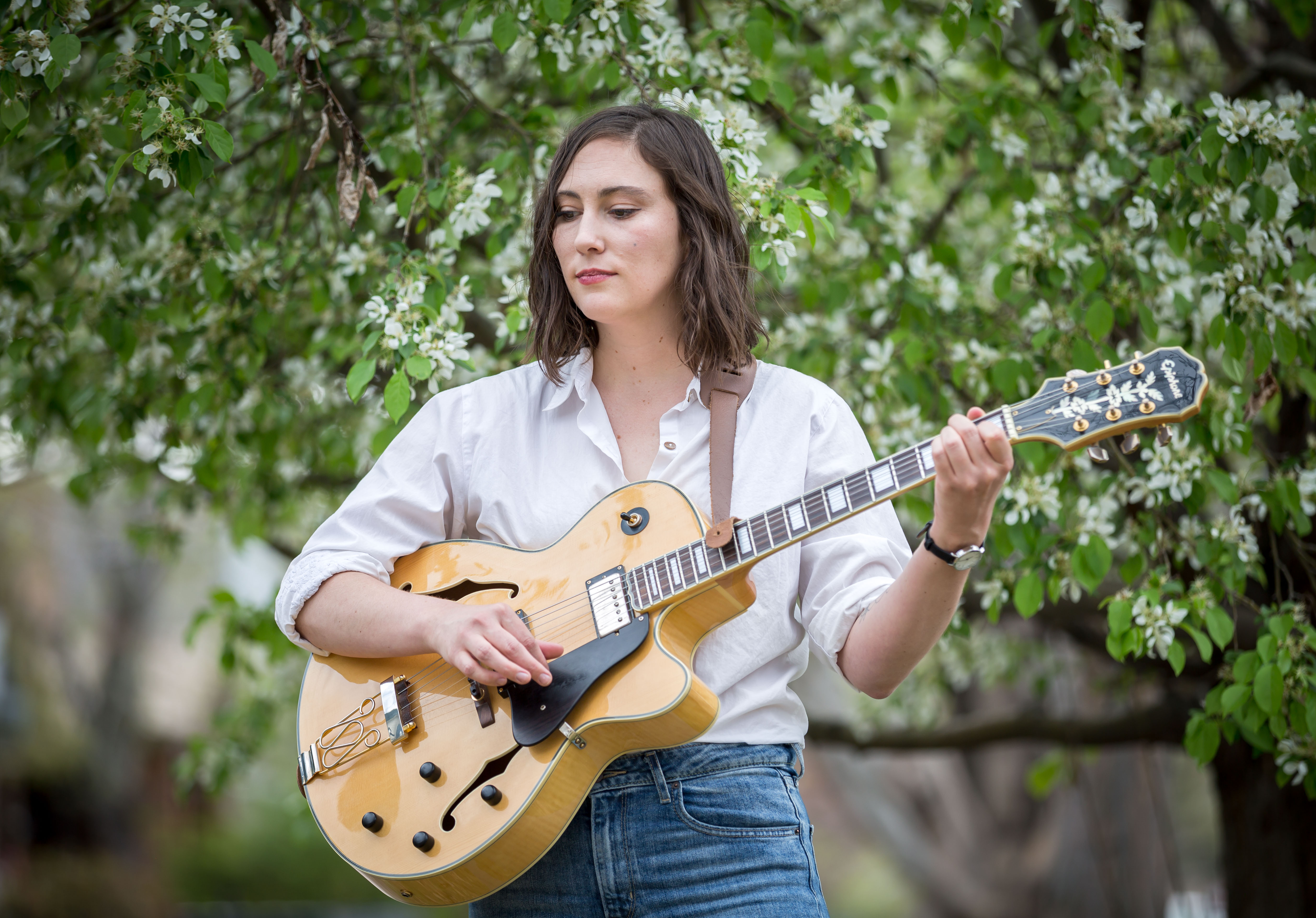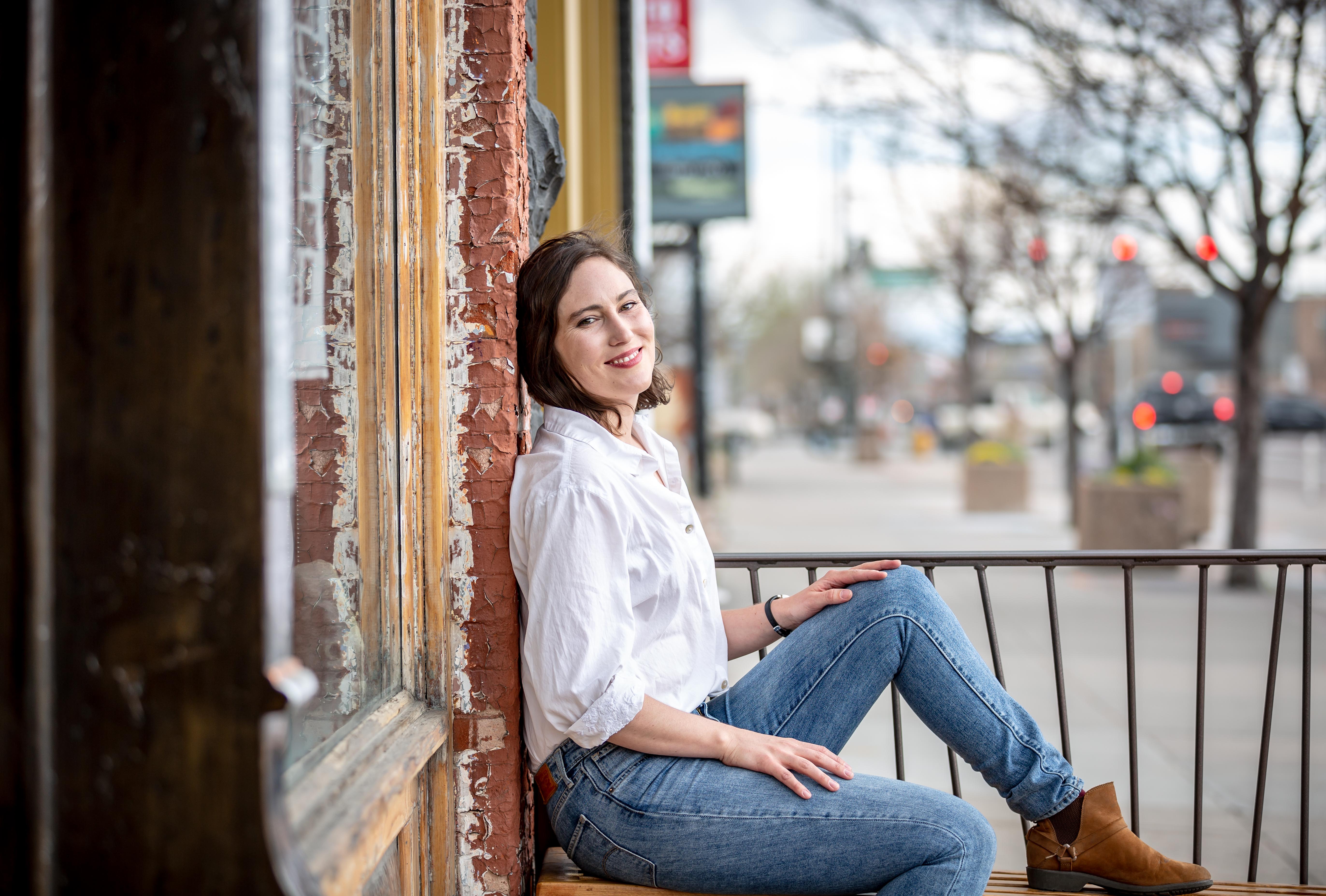This is an entry in an ongoing series for 303 Magazine, which will provide a range of local album reviews. It is our intention to highlight the talents of local musicians, whether veterans to the industry or newcomers. Like the bands, the album can be fresh or something we just haven’t had the power to take off repeat in the past few months. Check out previous entries in the series here.
Driven by an insatiable sense of wanderlust, Claire Heywood has spent the better part of her 20s seeking out novel experiences to fuel her writing. When that search unexpectedly lead her to songwriting, she knew she had found her passion. The Wind, It Howls is a deeply personal — yet unequivocally relatable — account of love and loss, redemption and healing.
Heywood’s beautifully raspy and deliberate vibrato conveys emotion in a manner that even seasoned veterans struggle to achieve. Her mature vocals and thoughtfully crafted lyrics make it hard to believe that Heywood has only been seriously pursuing songwriting for the past few years. With such a strong introduction to the music scene, it’s clear that Heywood’s is a voice that refuses to go unnoticed.
Graduating with a degree in English from Colorado State University in 2013, the Colorado native decided to take her writing professor’s advice to “go have some experiences” quite literally. In the years following her graduation, Heywood solo backpacked throughout Central America, spent time at an Ashram, and traveled across North America in a bus conversion visiting different communities.
“I felt like we thought we were going out to teach something to the world about how you could live this simple lifestyle — but actually, we just learned and got our asses kind of kicked by the whole experience,” Heywood laughed as she reflected on her bus adventure.
An avid essayist at the time, Heywood hoped that these experiences would provide material for her writing — and they did, just not in the way she expected. When she channeled her writing into a more poetic format — drawing on emotion rather than intellect — Heywood realized that lyric writing was her true calling.
“Once I started writing songs, I just loved it. I’ve never felt a mode of writing that I feel more connected with.”
This realization prompted a year-long education process during which Heywood took guitar and vocal lessons and studied songwriting structure. On a whim, Heywood moved to Asheville, North Carolina, to give herself the space she needed to fully immerse herself in the songwriting process. Once she had composed the arsenal of songs that would make up The Wind, It Howls, she moved back to Denver to make her dream a reality. This past March, Heywood released her debut EP to a full house at Syntax Physic Opera.
Despite it’s seemingly bright and airy nature, the opening track, “Trails,” revolves around a rocky relationship that ended abruptly — the track follows Heywood’s musings as she grapples with gaining closure from this relationship. The “trails of light that stretch between us” symbolize the energetic connections between people that exist even when they are not physically near to each other. “I want to forget, but I know that light is king,” Heywood sings, frustrated by the unfinished business of the relationship.
The following track, “The Canyon,” embodies the wild spirit of the west with story-driven lyrics centering around a mythical woman emerging from the wilderness. “She came from the canyon, the mother, the dust it sparkles on her…blink and she is gone.” Distinctly more melancholy than the previous song, the longing in Heywood’s voice is palpable in the title track of the album. “The Wind, It Howls” reflects on the pain of unrequited love. Although it’s a feeling that nearly every adult has experienced in their lifetime, Heywood’s emotive lyrics make you feel as if you are encountering it for the first time.
“I’ve learned that, when I wrote the songs from a place of being in pain, I didn’t understand that I was also writing a song about the process of healing.”
With a slower build than the rest of the tracks on the album, “Old Soul’s Motel” tells the story of a woman on the hunt for a place to rest and recover from the hardships of life. Heywood explains that this song is largely about “taking personal responsibility for your own healing.” Although the protagonist in “Old Soul’s Motel” is traveling to a physical place to heal, the song urges the listener to “cultivate that place within yourself,” says Heywood.
“Great Pretender” conveys the all-too-familiar tale of getting swept up in someone who misrepresented what you meant to them. “You were the one who got enamored first, you were the one who said you thought you could do this forever, you were the one, oh honey don’t you remember,” Heywood sings. The track laments the feeling of being mislead and then tossed away by someone you fell for.
The album comes to a close with the hopeful melody of “Moonrise” — assuring the listener that they are on the path to healing. “Moonrise” is dreamy and calm, as if letting the proverbial dust settle after the difficult lessons of the previous tracks. “I don’t know how long it will take, I’ve got some remedies to make,” Heywood sings, accepting the pain of her past and taking responsibility for her own recovery.
As it is for many, songwriting is a form of therapy for Heywood. Although she wrote The Wind, It Howls during a time when she was navigating the end of a romantic relationship, her newer material revolves more around her “relationship with money, my relationship with my sense of home, a little bit more of my own spiritual relationship with myself rather than relationships with men.”
Finding a balance between writing and promoting your own music, working a day job, nurturing interpersonal relationships and trying to maintain a sense of calm throughout it all is a constant struggle when pursuing a career in the arts. Heywood has moved three to four times per year since graduating from college to take advantage of whatever alternative or cheaper housing comes her way. And while living in a yurt or bus conversion sounds exciting, Heywood is quick to point out that this lifestyle is not glamorous.
Heywood explains that she pursues these living situations out of necessity so she has the “flexibility to work remotely and then spend the rest of the time on music and marketing and [everything else] that comes with music that we don’t think about.” It’s a struggle that many people pursuing artistic careers are familiar with. While it may not be a glamorous lifestyle, it’s the life she embraces. For Heywood, getting the chance for her message to resonate with an audience is the greatest payoff of all.
“I feel like I’m always reaching for something more. I don’t really know what it is, but I always want to keep going. I feel like I’m obsessed with not becoming stagnant. I want change to happen quickly for me, especially when I know what I want.”
Keep up with Claire Heywood through her Website, Facebook and Instagram pages. Be sure to snag tickets to her upcoming live recording session with Turvy Organ on May 13th at ReCreative Denver as well as her performance at Tandem Bar on May 17.
Heywood will also be performing at the Underground Music Showcase at the end of July, get tickets here if you haven’t already.
All Photography by Giacomo Di Franco









